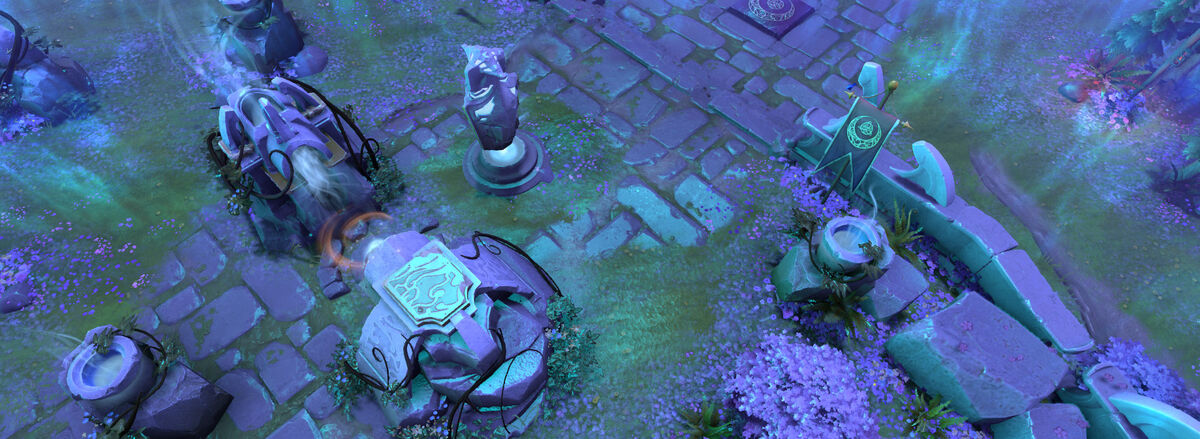The group stage of FISSURE Universe: Episode 4 in Dota 2 concluded on March 26th. The most significant outcome was the failure of the star-studded Aurora Gaming roster to advance to the playoffs. For the second tournament in a row, Nightfall`s team has struggled to defeat top-tier opponents. Currently, Aurora holds a record of 1 win and 7 losses against major teams (including Tidebound). This article examines the factors that hindered the team this time.
Similar to the previous event, Aurora began this tournament with a stand-in, TA2000, playing as carry in the initial matches. However, the two crucial defeats against Tidebound and BetBoom Team occurred with Nightfall in the lineup. Therefore, any consideration for roster changes should be minimal.
Let`s focus on Aurora`s most recent game in the tournament against BetBoom Team. Firstly, because Nightfall faced a team not currently in peak form. Secondly, because Aurora had genuine opportunities to win this series.
Aurora confidently won the first map, largely due to their draft. They selected strong side lanes, which allowed them to establish an early advantage and execute successful team fights in the mid-game. It`s worth noting that BetBoom Team`s last pick of Slark also contributed – currently an unpopular carry hero, who was particularly vulnerable to Invoker in this draft. As a result, Pure~ only dealt 5,000 damage in 35 minutes, essentially joining the series from the second map onwards.
Again, Aurora performs well when they win lanes and can expand their advantage by securing more farm. This style is reminiscent of BetBoom Team`s approach last season.
In the second map, BetBoom Team avoided Slark experiments and chose a more meta draft. Despite this, Aurora still had chances for a decent start (their side lane matchups were workable). However, BetBoom Team outplayed their opponent. Pure~`s team struggled to dominate the side lanes and shifted focus to mid. BetBoom Team`s supports repeatedly rotated to assist gpK~, who was already significantly ahead of kiyotaka in creep score. After two deaths of Aurora`s mid-laner, the gold difference between the mid players became enormous. Aurora`s supports deserve some criticism for not keeping up with Save-`s rotations.
Crucially, BetBoom Team immediately capitalized on their strong Monkey King. A telling example is the team fight in the enemy jungle at the ninth minute. Aurora lacked the coordination to either engage in the fight together (TORONTOTOKYO arrived late, just to die along with his team) or to disengage and split push across the map.
Aurora once again struggles with the absence of a Plan B and a lack of understanding of how to react when the opponent is applying pressure. When kiyotaka`s lane is not going well, the team struggles to find their footing in Dota 2. The carry and offlaner farm passively, while the supports struggle to find impact on the map, as Tusk and Silencer lack the damage to initiate effectively together. Consequently, when in this situation, Aurora slowly (or quickly, if the opponent accelerates the game) descends towards defeat.
However, in the third map, Aurora showed resilience for the first time in a while and demonstrated the potential for a mini-comeback. The first 15 minutes of the deciding game mirrored the previous map: gpK~ winning mid, constant support rotations from BetBoom Team, and passive play from Aurora`s offlaner and carry (both farming Radiance – which they eventually completed, but more on that later).
By the 18-minute mark, BetBoom Team had a 6,000 gold lead (against Alchemist), secured Tormentor, and Aegis. But then kiyotaka stepped up. While some fans likely criticized him post-match for several deaths after aggressive dives, it was precisely his mid-lane activity at this critical juncture that allowed Aurora to remain in the game. The Ember Spirit, Phoenix, and Ancient Apparition combination could eliminate any BetBoom Team hero, thus slowing down the opponent`s momentum. Within five minutes, gpK~ and his team`s advantage had completely vanished.
Moments like kiyotaka being caught in an ambush after chasing a kill are more memorable. Yet, it`s important to reiterate: without the mid-laner`s aggression, Aurora would not have resurfaced in this map, as at least one core hero needs to be actively playing Dota, not just farming.
It`s worth revisiting the recurring issue with Aurora – TORONTOTOKYO`s passivity. On the third map, he transitioned from the lane to intensive farming on Abaddon. He farmed a second Radiance, whose effect, as a reminder, does not stack (meaning opponents only take damage from one Radiance). Essentially, it becomes a farming item in a situation where the opponent is applying significant pressure. If BetBoom Team had capitalized on the first Aegis effectively, the map could have ended with two `naked` Radiances on Aurora`s core heroes.
If TORONTOTOKYO had effectively utilized this earned gold later, there would be fewer questions. However, a six-slotted Abaddon dealt only 14,000 damage to enemy heroes in a 55-minute game. This was the lowest damage output on the map (across both teams). Aurora`s offlaner opted for a damage-focused build, forgoing Blade Mail, Aghanim`s Scepter, and Sange and Yasha.
It`s quite symbolic that the moment when Aurora was closest to taking the lead (gold advantage, Aegis and Refresher secured) was lost precisely due to TORONTOTOKYO`s unnecessary death. It was the realization of passive farming`s consequences.
Of course, it`s not just about one specific unfortunate death (kiyotaka also has his share). The underlying problem is that Aurora sometimes lacks players who are proactively playing `Dota`. Among the core players, only one is willing to act and create opportunities (and even he sometimes overextends). The team thrives when starting with an early advantage. However, the issue arises when opponents don`t just passively lane but actively rotate and disrupt Aurora`s usual laning phase; Aurora struggles to adapt. Hopefully, the team can rectify this in the near future. With upcoming tournaments and qualifiers, there will be ample opportunities for practice. However, Aurora may need to not just improve specific aspects but fundamentally rethink their overall approach to the game.

